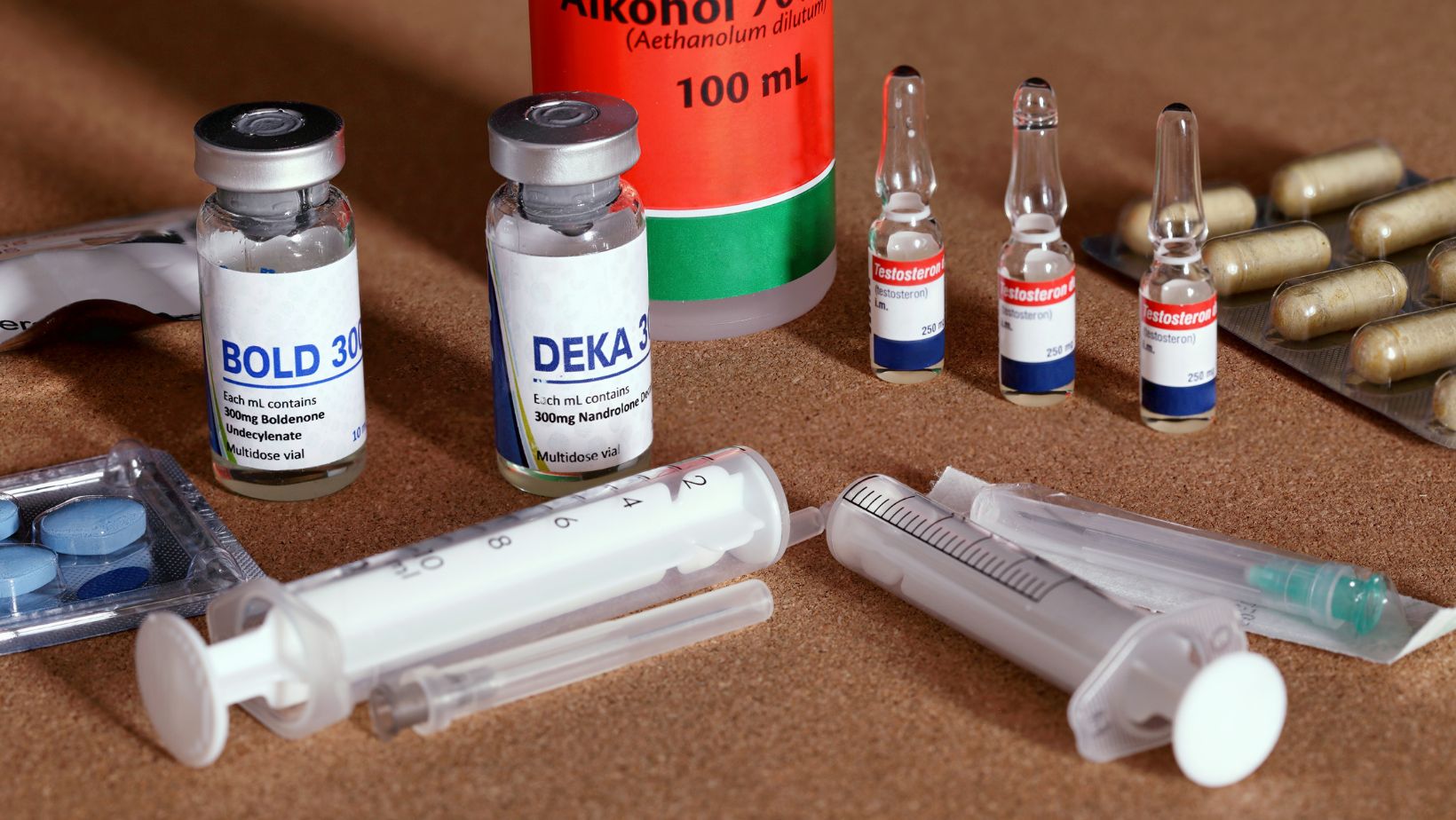Steroid abuse has become a growing concern in today’s society, especially among athletes and bodybuilders seeking rapid muscle gains. While steroids can offer significant benefits when used medically, misuse leads to a host of serious health issues. Understanding these effects is crucial for anyone considering their use.
Understanding Steroid Abuse
Steroid abuse encompasses the misuse of anabolic-androgenic steroids (AAS) outside prescribed medical contexts. Knowledge about steroids and the motivations behind their misuse is crucial for addressing this growing concern.
What Are Steroids?

Steroids are synthetic substances similar to the male sex hormone testosterone. Medical professionals prescribe them for conditions like delayed puberty, muscle loss from diseases, and hormone imbalances. However, athletes and bodybuilders misuse anabolic steroids to enhance physical performance and improve muscle mass.
- Performance Enhancement: Athletes use steroids to boost strength, speed, and endurance. They seek a competitive edge in sports and fitness.
- Appearance Improvement: Bodybuilders aim for a muscular physique. Steroids accelerate muscle growth and fat loss.
- Peer Pressure: Social circles influence steroid use. Friends and teammates may encourage it for athletic performance.
- Body Image Issues: People with body dysmorphic disorder (BDD) use steroids to alter their appearance, seeking satisfaction through perceived physical improvements.
- Misinformation: Lack of accurate information leads to steroid abuse. Misunderstanding the serious health risks results in improper usage.
Physical Effects of Steroid Abuse
Anabolic-androgenic steroids (AAS) can cause numerous adverse physical effects. These effects vary in severity and duration.
Hormonal Imbalances
Steroid abuse disrupts the body’s natural hormone production. Men may experience reduced sperm production, testicular atrophy, and gynecomastia (breast development). Women may develop irreversible changes such as a deeper voice, increased body hair, and menstrual irregularities. Over time, these hormonal imbalances can lead to fertility issues.
Psychological Effects of Steroid Abuse

Steroid abuse significantly impacts mental health. Individuals commonly experience mood swings, ranging from euphoria to depression. Aggressive behavior often referred to as “roid rage,” is another frequent issue. Users might also display hostility or irritability, creating challenging social dynamics.
Anxiety and Paranoia become pronounced in many users. This heightened sense of worry and suspicion can lead to strained relationships and diminished quality of life. Long-term abuse exacerbates these conditions, making them more difficult to manage.
Cognitive impairments arise from prolonged steroid use. Memory lapses and difficulty concentrating undermine daily tasks and overall productivity. These cognitive deficits often persist, even after discontinuing use.
Psychological dependency on steroids is a serious concern. Users develop an obsession with physical appearance, driving continued abuse despite adverse effects. This preoccupation often disrupts balanced living and damages self-esteem.
Several studies (e.g., American Psychological Association) indicate a correlation between long-term steroid use and mental health disorders. Depression and anxiety disorders are prevalent among individuals misusing steroids, and professional help is frequently needed to address these issues.
Social Consequences of Steroid Abuse

Steroid abuse leads to significant social consequences, impacting relationships and social dynamics. Individuals abusing steroids often exhibit aggressive behavior, known as “roid rage”, which strains personal and professional relationships. Friends and family may distance themselves due to unpredictable moods and violent outbursts, resulting in social isolation.
Workplace performance suffers due to impaired judgment and concentration. Colleagues might notice mood swings and temperament changes, reducing a user’s credibility and affecting career prospects. For athletes, steroid abuse can lead to disqualification, suspensions, or permanent bans, tarnishing reputations and ending careers prematurely.
Legal troubles arise as steroids are controlled substances in many regions. Users risking illegal purchase or possession face legal penalties, including fines and imprisonment.
Treatment and Recovery Options
Addressing steroid abuse requires a comprehensive approach involving medical intervention and psychological support. Medical professionals can help manage withdrawal symptoms and hormonal imbalances, while therapists can address underlying issues like body image concerns and peer pressure. Support groups and counseling provide a community for individuals to share their experiences and gain encouragement. Education and awareness programs also play a crucial role in preventing steroid misuse by highlighting its risks and promoting healthier alternatives. Through a combination of medical care, psychological support, and community resources, individuals struggling with steroid abuse can find a path to recovery and improved well-being.


